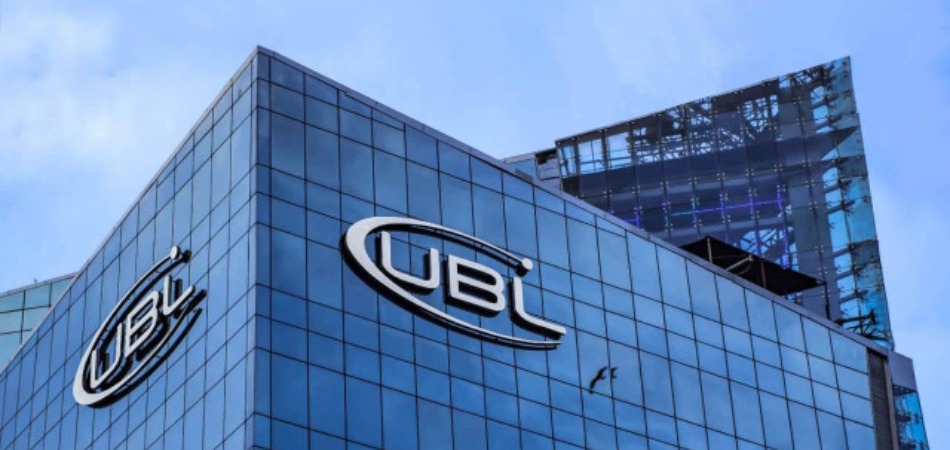PSMC’s Minority Shareholders Left in the Dust

Nilam Bano | May 04, 2025 at 05:54 PM GMT+05:00
May 04, 2025 (MLN): After years of bleeding red ink, shuttered plants, and dwindling investor hope, Pak Suzuki Motor Company (PSMC) stunned the market with a remarkable turnaround. From a loss of over Rs10 billion in 2023, the automaker wiped the slate clean and parked a profit of Rs25.23bn in 2024.
But just as the company stepped into the green, minority shareholders found themselves shown the door through a swift delisting that, while dressed up as being “in their best interest,” felt more like being left behind in the dust.
The company was delisted from the Pakistan Stock Exchange at a valuation of Rs50 billion, roughly 2x its annual earnings. A P/E of 2 in a market where even conservative valuations go higher? It begs the question: Was this a fair deal, or were minority shareholders shortchanged?
The speed and timing of this delisting have raised more than a few eyebrows. A few months before this dramatic financial recovery, PSMC proposed a delisting price of Rs406 per share.
Fast forward, and that offer jumped to Rs609 per share—an increase of nearly 50% in a matter of weeks.
This delisting episode raised serious concerns about the robustness of regulatory oversight, which Mettis Global had already highlighted in its earlier article.
What triggered this sudden generosity? And more importantly, what changed so drastically in that short span?
The answer may lie in what was kept behind closed doors.
First Biogas-Powered Automotive Plant
The launch of Pakistan’s first biogas-powered automotive plant by PSMC is a major strategic development, one that is bound to significantly reduce production costs.
But such a project does not materialise overnight.
The decision must have been in the pipeline for months, if not longer.
If the management had foreseen this boost to profitability while proposing delisting, yet withheld this from the public domain, then we may be staring at a textbook case of insider information misuse.
There’s an elephant in the room that cannot be ignored: Was the company's management already aware of the windfall that 2024 would bring when they initiated the delisting process? And if so, why were shareholders not informed of these transformative developments? Transparency, after all, is the cornerstone of good governance.
This also puts the role of the Delisting Committee and the SECP under the spotlight. Why was the asset valuation method used? Why was a 50% asset value accepted as the basis when the company was becoming cash-rich? Was the committee convinced?
At the heart of the matter lie two key players: the valuator and the Voluntary Delisting Committee (VDC). Their handling of the process seems to have resulted in a valuation that many view as falling short of fairly reflecting the company’s true worth, which left minority shareholders with a minimum acceptable price rather than a genuinely fair one.
Citing a valuation carried out by Iqbal A. Nanjee & Co., initially, the company proposed Rs406 per share. Then came the Voluntary Delisting Committee proposed the buyback rate to Rs609 per share, missing the detailed rationale.
Let us not forget that PSMC paid brand royalties to its parent worth Rs4.2bn in 2022 alone, or 2% of net revenue, far above industry norms.
The royalty-to-profit ratio averages an eye-watering 167% over a decade. The Suzuki brand had value, but shareholders were not being paid for it.
If this is what "protecting minority shareholders" looks like.
How can one forget the episode involving Mian Nadeem Nisar and the resistance from other minority shareholders?
Owners representing 15.39% of the total shareholding of PSMC collectively rejected the delisting of the company and the purchase price of Rs. 609/- per share. Hence, they will not be selling their shares to the sponsors of PSMC.
In a letter written to MD PSX, Commissioner Securities and Exchange Commission of Pakistan (SECP), CEO of PSMC and Chairman Voluntary Delisting Committee (VDC), the shareholders drew attention to clause 5.14.5 (a) of the Rule Book of PSX, which mandates that when the sponsors' shareholding is below 90%, they are obligated to increase their shareholding to at least 90% of the total shares to qualify for delisting.
It is pertinent to note that Investor Nadeem Nisar, who held more than 10% shareholding in PSMC, formally contested the delisting price of Pak Suzuki Motors shares, challenging its valuation and citing procedural irregularities.
In February 2024, he issued a letter to the PSX and SECP in which he expressed deep concerns regarding valuation discrepancies and procedural lapses in the delisting process.
However, after approval of PSX, the management of PSMC commenced its share purchase offer, effective from February 22, 2024, until April 21, 2024.
Subsequent profitability and cost reduction plan unfolded by PSX and swift acceptance of 50 % increase in buy back price was correlated and not a coincidence, and evidence that minority shareholders' apprehension had merit, probably ignored by the Regulators and Delisting Committee alike.
Reverse Book Building: The Fair Path, Always Ignored
The PSX’s relevant regulatory authorities are urged to reevaluate the delisting process and consider the adoption of a Reverse Book Building method which is the only forum to ensure a fair and just outcome for all stakeholders involved.
It is a mechanism that lets shareholders discover the price, instead of relying on arbitrary values by valuators and regulators.
In IPOs, shareholders are asked to pay premiums based on promise and potential. But in delistings, they are offered peanuts based on dated balance sheets and vague outlooks.
If the company is good enough to make Rs25bn in profit, it’s good enough to stay listed. If it is profitable enough for the parent to want it all, then it is certainly worth more than Rs609/share.
Given the glaring gaps and the speed with which the revised price was accepted by the company, it’s only fair that the CEO and board be called upon to explain the financial assumptions and projections used in budgeting for the current year, especially in light of this massive deviation.
Justify It, Investigate It, Compensate Minority Shareholders
The Delisting Committee should justify the sudden shift in valuation, the chosen methodology, and their rationale for approving the revised price.
Further, the SECP must initiate a third-party investigation to ensure that all developments and pricing decisions were made in good faith and full transparency.
Minority shareholders should be compensated accordingly, whether through a one-time dividend, a revised buyback price, or an alternative profit-sharing mechanism.
To sweep these concerns under the rug would not only undermine investor confidence but also set a dangerous precedent in our capital markets.
If companies can ride out years of losses with shareholder patience and then quietly exit just as the tide turns, what message does that send to retail investors and long-term holders?
Conclusion
In order to regain the confidence of minority shareholders, it would be appropriate that an independent investigation be conducted by SECP with regard to the valuation basis and appropriateness of critical information by the Company.
Furthermore, Mettis Global strongly reiterate its earlier suggestion to immediately introduce the Reverse Book Building Rule to help minority shareholders and bolster their confidence in PSX as well as other stakeholders.
|
Statement of Profit and Loss for the year ended December 31, 2024 (Rs’000) |
|||
|---|---|---|---|
|
2024 |
2023 |
% Change |
|
|
Sales - net |
168,989,240 |
102,109,380 |
65.50 |
|
Cost of sales |
(136,091,836) |
(84,835,572) |
60.42 |
|
Gross profit |
32,897,404 |
17,273,808 |
90.45 |
|
Distribution and marketing expenses |
(4,276,110) |
(2,510,162) |
70.35 |
|
Administrative expenses |
(3,936,863) |
(3,893,340) |
1.12 |
|
(Provision) / reversal of impairment losses |
(9,052) |
184,761 |
- |
|
Total operating expenses |
(8,222,025) |
(6,218,741) |
32.21 |
|
Operating profit |
24,675,379 |
11,055,067 |
123.20 |
|
Other expenses |
(2,877,319) |
(2,116,956) |
35.92 |
|
Other income |
6,788,658 |
2,139,116 |
217.36 |
|
Finance costs |
(326,520) |
(10,963,737) |
-97.02 |
|
Share of loss of equity accounted investees |
(628,764) |
(84,551) |
643.65 |
|
Profit before taxation |
27,631,434 |
28,939 |
95381.65 |
|
Taxation |
(2,400,856) |
(10,098,630) |
-76.23 |
|
Profit / (loss) for the year |
25,230,578 |
(10,069,691) |
- |
Copyright Mettis Link News
Related News
| Name | Price/Vol | %Chg/NChg |
|---|---|---|
| KSE100 | 134,299.77 290.06M |
0.39% 517.42 |
| ALLSHR | 84,018.16 764.12M |
0.48% 402.35 |
| KSE30 | 40,814.29 132.59M |
0.33% 132.52 |
| KMI30 | 192,589.16 116.24M |
0.49% 948.28 |
| KMIALLSHR | 56,072.25 387.69M |
0.32% 180.74 |
| BKTi | 36,971.75 19.46M |
-0.05% -16.94 |
| OGTi | 28,240.28 6.19M |
0.21% 58.78 |
| Symbol | Bid/Ask | High/Low |
|---|
| Name | Last | High/Low | Chg/%Chg |
|---|---|---|---|
| BITCOIN FUTURES | 118,140.00 | 119,450.00 115,635.00 |
4270.00 3.75% |
| BRENT CRUDE | 70.63 | 70.71 68.55 |
1.99 2.90% |
| RICHARDS BAY COAL MONTHLY | 97.50 | 0.00 0.00 |
1.10 1.14% |
| ROTTERDAM COAL MONTHLY | 108.75 | 108.75 108.75 |
0.40 0.37% |
| USD RBD PALM OLEIN | 998.50 | 998.50 998.50 |
0.00 0.00% |
| CRUDE OIL - WTI | 68.75 | 68.77 66.50 |
2.18 3.27% |
| SUGAR #11 WORLD | 16.56 | 16.60 16.20 |
0.30 1.85% |
Chart of the Day
Latest News
Top 5 things to watch in this week
Pakistan Stock Movers
| Name | Last | Chg/%Chg |
|---|
| Name | Last | Chg/%Chg |
|---|





 MTB Auction
MTB Auction